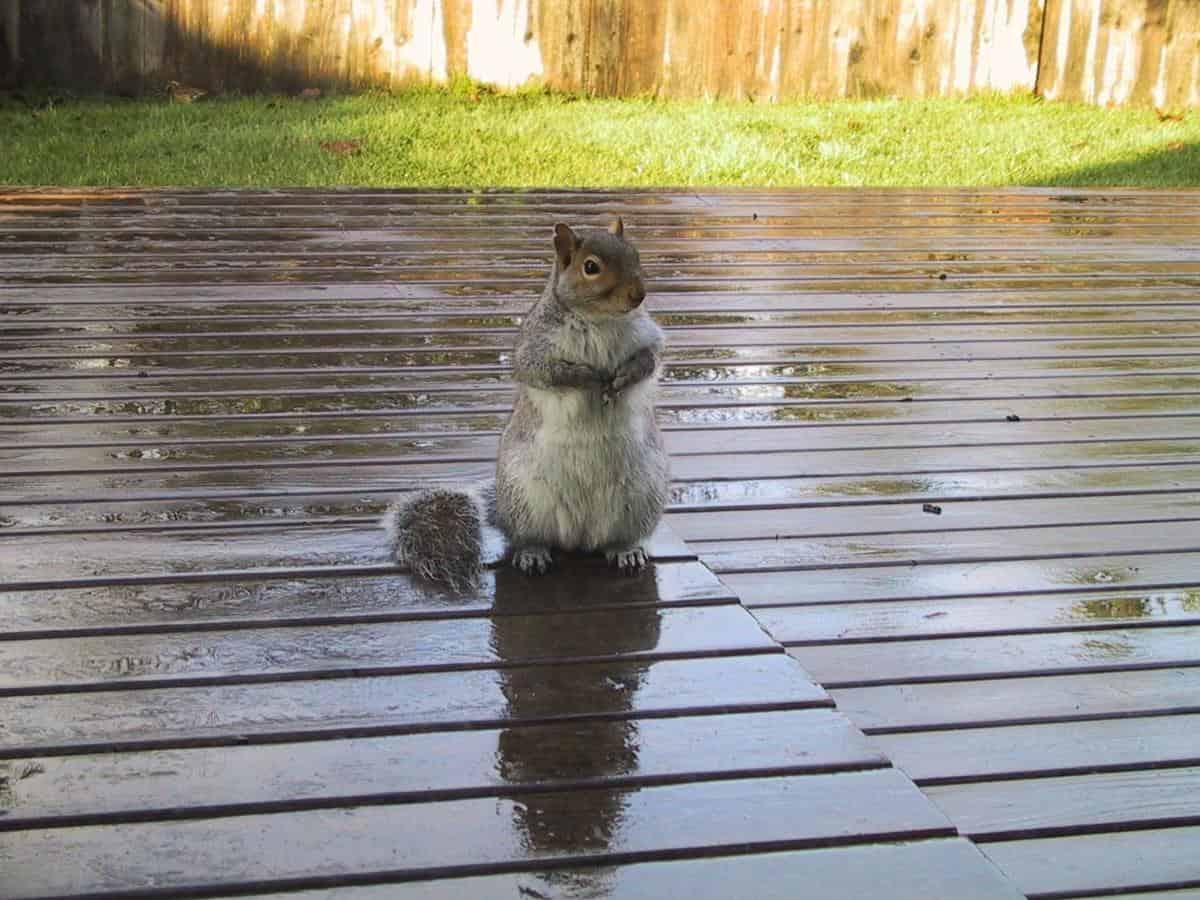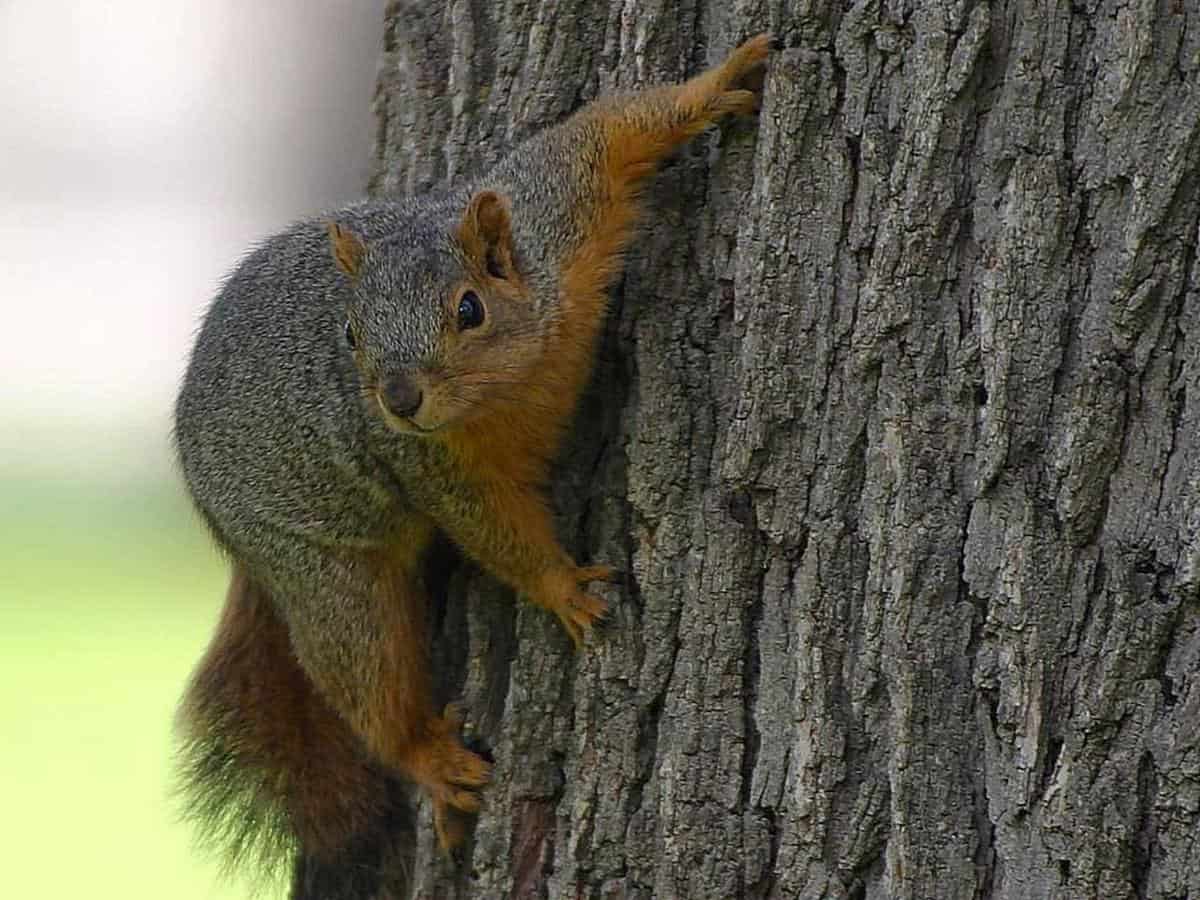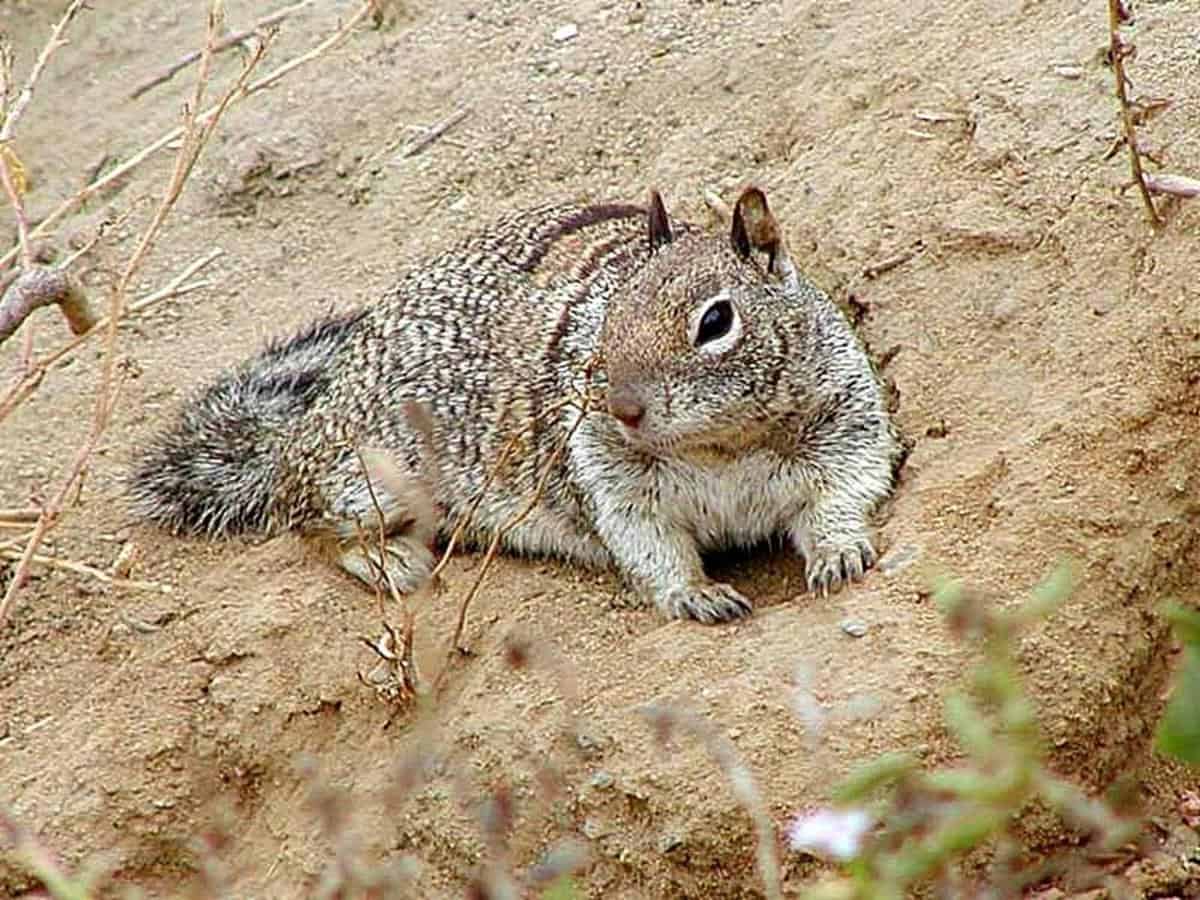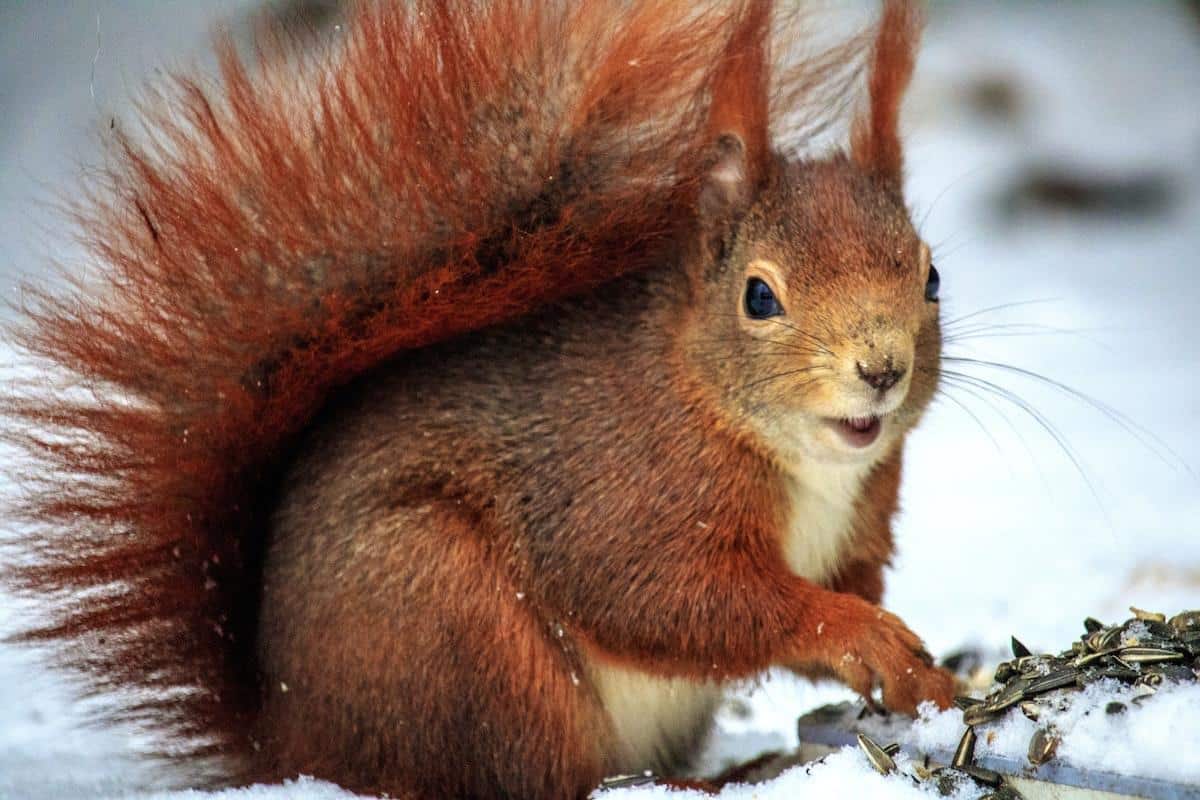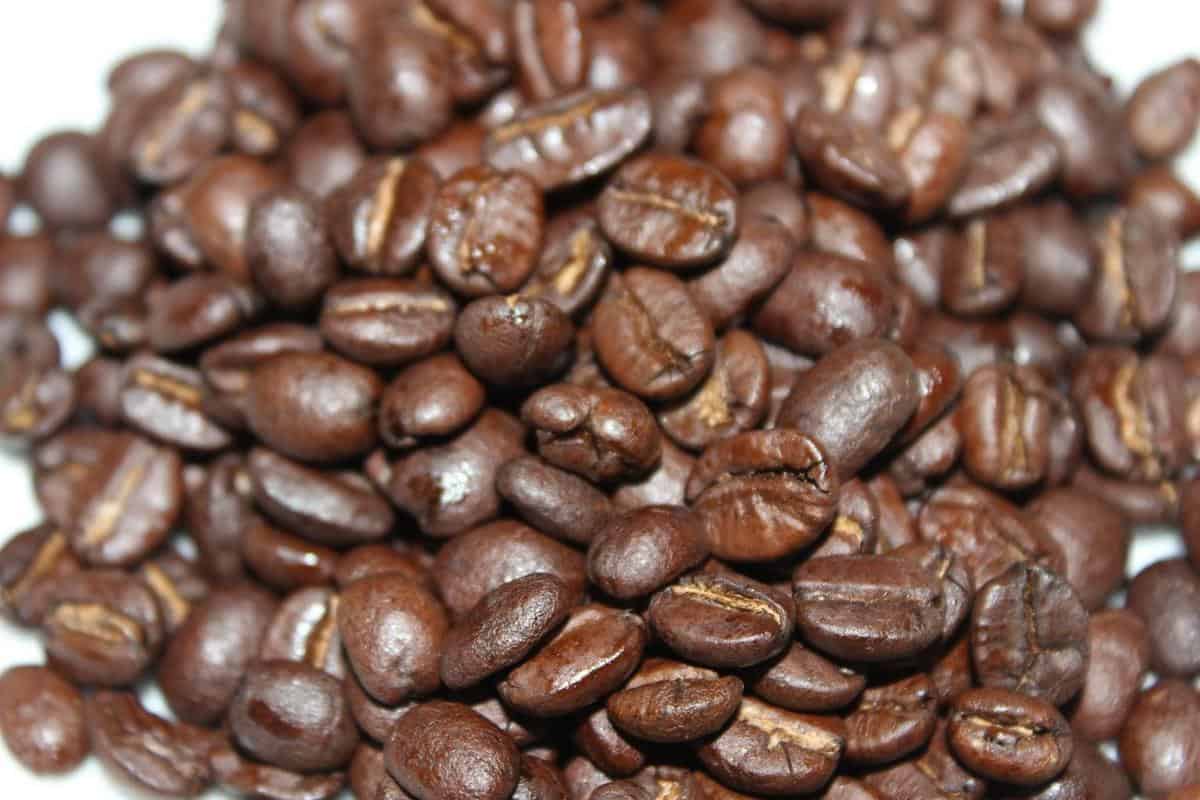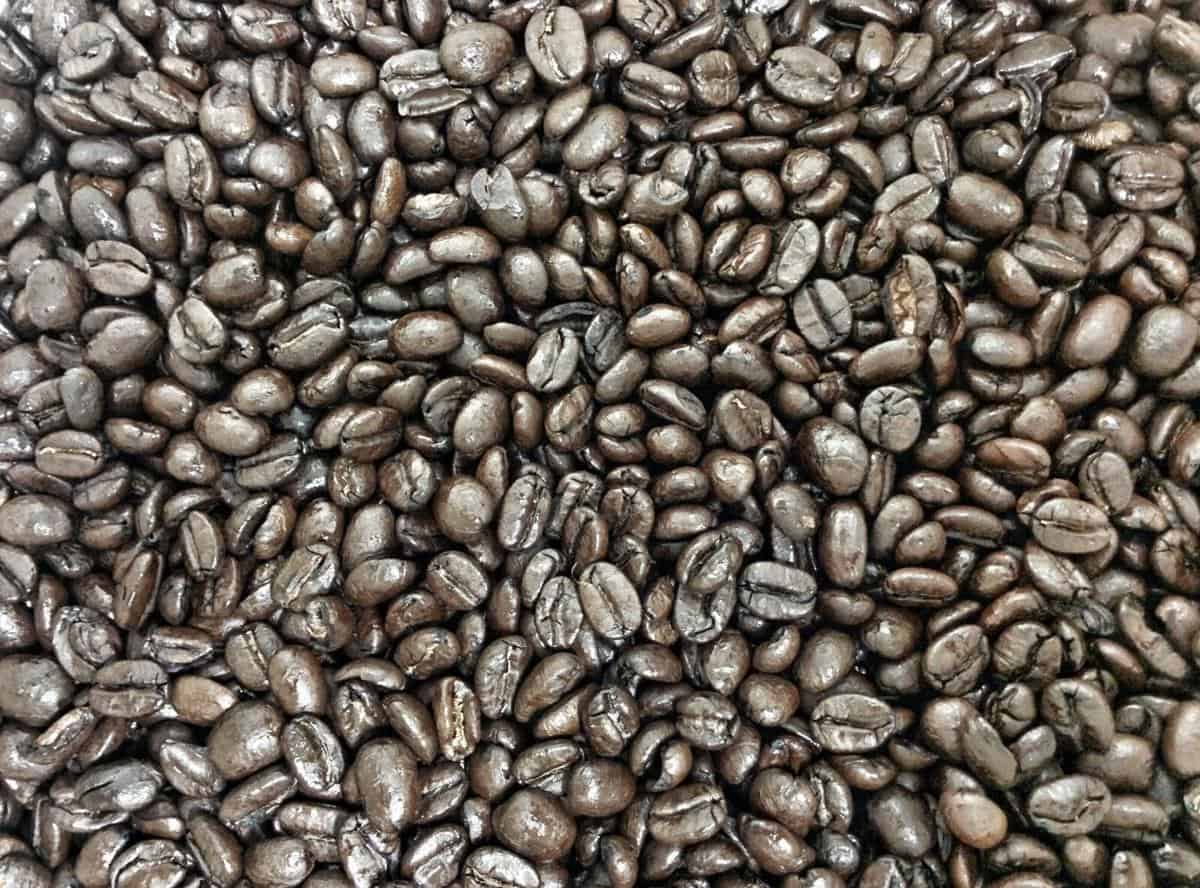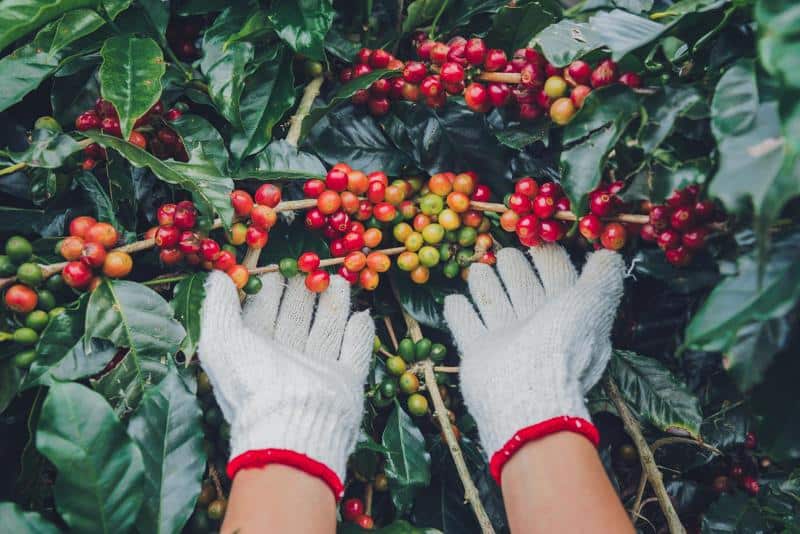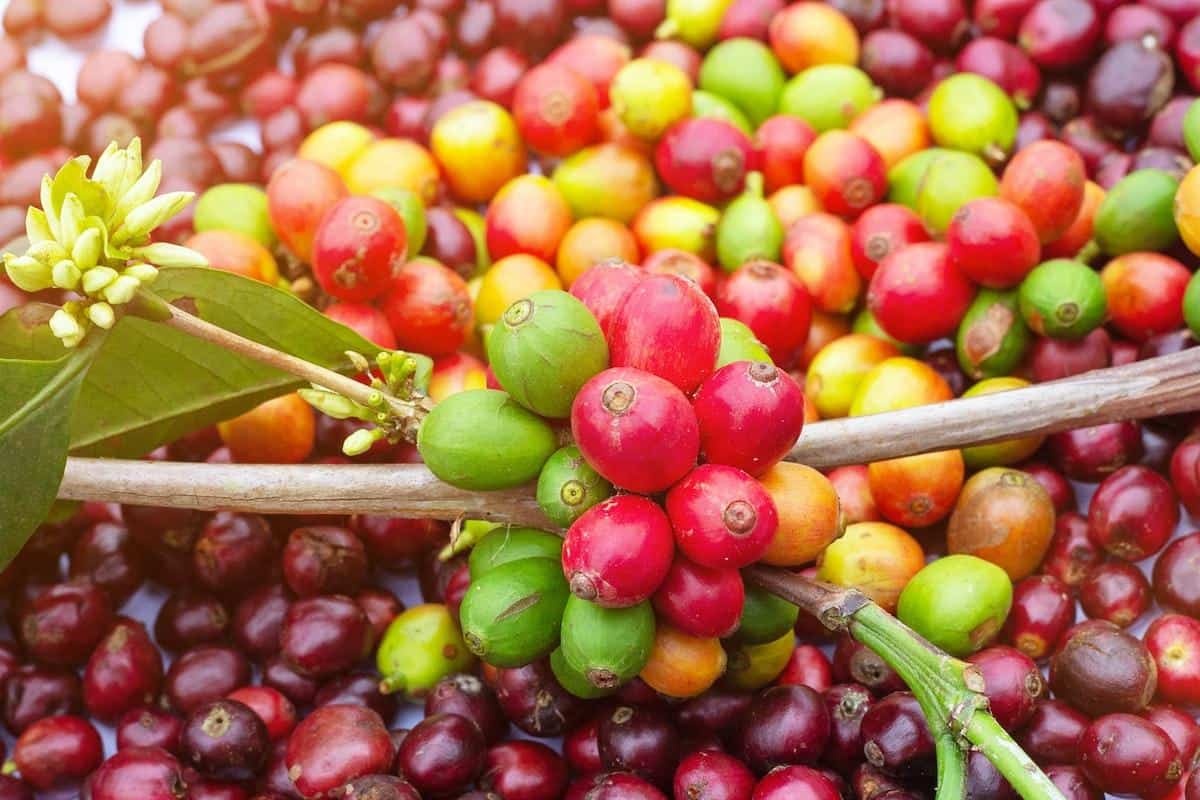Coffee grounds have long been touted as a natural and effective squirrel repellent. But is there any truth behind this popular belief? In this article, we will delve into the connection between coffee grounds and their potential as a squirrel deterrent. We will explore the science behind coffee grounds, examine real-life experiences and testimonials, and compare coffee grounds to other methods of squirrel repellents.
Understanding squirrel behavior is essential in determining why keeping them away matters. Squirrels can cause significant damage to gardens, crops, and bird feeders. They are known for digging up bulbs, stealing fruits and vegetables, and even chewing through wires. As such, finding an effective way to repel squirrels becomes crucial for gardeners, homeowners, and anyone who wishes to protect their property from these furry intruders.
Coffee grounds contain active compounds that may have an impact on squirrels. These compounds include caffeine, which has been shown to affect the nervous systems of various animals. Additionally, coffee grounds can emit a strong smell that some believe acts as a deterrent for squirrels. By understanding the science behind coffee grounds and its potential effects on squirrels’ behavior, we can evaluate whether or not they truly work as a repellent.
In the following sections of this article, we will delve deeper into popular anecdotes surrounding coffee grounds as a squirrel repellent while examining if they hold any scientific validity. Furthermore, we will compare coffee grounds with other alternative methods used in squirrel control to determine if they are truly the best option available.
For those who wish to utilize coffee grounds in deterring squirrels effectively, we will also provide step-by-step instructions on creating a DIY coffee ground squirrel repellent.
Stay tuned as we uncover the facts behind using coffee grounds as a means of keeping squirrels at bay. Let’s separate myth from reality by weighing the pros and cons and consulting expert opinions on this widely debated topic. With a comprehensive understanding of coffee grounds as a squirrel repellent, you will be equipped to make an informed decision and protect your property effectively.
Understanding Squirrel Behavior
Squirrels are common creatures that can be found in many urban and suburban areas. While they may seem harmless and even cute, there are several reasons why it is important to keep them away from certain areas. Understanding squirrel behavior is crucial in order to effectively deter them.
One reason why keeping squirrels away is important is that they can cause damage to your property. Squirrels have a natural instinct to chew, and this can lead to damaged fences, wires, and even structures such as the eaves of your house. Additionally, squirrels often dig holes in lawns and gardens in search of buried nuts or acorns, which can negatively impact the appearance of landscapes.
Another concern with squirrels is their potential to spread diseases. Squirrels can carry ticks and fleas which can transmit illnesses such as Lyme disease or typhus. They can also leave droppings that may contain harmful bacteria or parasites. By keeping squirrels at bay, you reduce the risk of these diseases being transmitted to humans or other animals.
Understanding squirrel behavior plays a key role in deterring them effectively. Squirrels are known for their agility and climbing abilities, so it is important to consider this when implementing repellent methods. They are also attracted to food sources, so ensuring that any potential food items are sealed or kept out of reach will help prevent their presence.
| Squirrel Behavior | Description |
|---|---|
| Chewing | Squirrels have incisor teeth that grow continuously throughout their lives, leading them to chew on various objects. |
| Caching | Squirrels bury or hide food in various locations to store for future consumption. |
| Tree Climbing | Squirrels are highly skilled climbers that use their sharp claws and strong hind legs to ascend trees effortlessly. |
| Jumping | Squirrels can leap distances of up to 20 feet from tree to tree or branch to branch, showcasing their impressive jumping abilities. |
By understanding these behaviors, you can better strategize and implement effective squirrel deterrent methods. Whether it is through using coffee grounds or other alternative repellents, having a clear understanding of squirrel behavior will greatly increase your chances of successfully keeping them away.
The Science Behind Coffee Grounds
Coffee grounds contain several active compounds that may have an impact on repelling squirrels. One of these compounds is caffeine, which is known to affect the central nervous system of animals. When squirrels come into contact with coffee grounds containing caffeine, it can cause them to experience heightened levels of anxiety and restlessness, potentially deterring them from staying in the area.
Another active compound found in coffee grounds is diterpenes, such as cafestol and kahweol. These compounds have been shown to exhibit insecticidal properties and are thought to have a repellent effect on certain pests, including squirrels. However, more research is needed to determine the specific impact of these compounds on squirrel behavior.
While the science behind coffee grounds as a squirrel repellent is promising, it’s important to note that the effectiveness may vary depending on a variety of factors such as the concentration of active compounds in the coffee grounds, the frequency of application, and the specific behavior patterns of squirrels in a given area.
| Active Compounds | Potential Impact |
|---|---|
| Caffeine | Anxiety and restlessness in squirrels |
| Diterpenes (cafestol and kahweol) | Possible repellent effect |
Popular Anecdotes
Real-Life Experiences: Coffee Grounds as Squirrel Repellent
Many individuals have claimed success in using coffee grounds as a natural squirrel repellent. These anecdotes often involve placing coffee grounds around plants or areas where squirrels are causing damage. One homeowner shared her experience, stating that after she sprinkled coffee grounds around her garden, she noticed a significant decrease in squirrel activity. Another gardener reported that squirrels seemed to avoid areas where coffee grounds were present.
While these testimonials are valuable for understanding how coffee grounds may deter squirrels, it is important to note that individual experiences can vary. Factors such as the concentration and freshness of the coffee grounds, as well as the specific behavior of the squirrels in a particular area, can influence the effectiveness of this method.
Evaluating Anecdotal Evidence
Despite many positive accounts, it is crucial to recognize that anecdotal evidence should not be considered scientific proof. Anecdotes offer valuable insights into real-life experiences and can guide further investigation but should not be solely relied upon when determining whether coffee grounds work effectively as a squirrel repellent.
It is possible that other factors contributed to the alleged success of using coffee grounds. For instance, some individuals may have inadvertently created barriers with their method of applying the coffee grounds, deterring squirrels from accessing certain areas rather than repelling them due to the odor or composition of the coffee grounds itself. Therefore, while popular anecdotes provide intriguing information, they should be interpreted with caution alongside scientific research and expert opinions on squirrel repellents.
The Role of Testimonials
Despite limitations, testimonials play an important role in understanding the potential effectiveness of alternative methods for squirrel deterrence. Real-life experiences help shed light on how coffee grounds may impact squirrel behavior and inspire further inquiry into this topic. They also serve as motivation for individuals seeking natural solutions to prevent squirrel damage in their gardens and yards.
However, it is essential to approach testimonials critically and not solely rely on them as the sole basis for deciding whether to use coffee grounds as a squirrel repellent. Combining personal experiences with scientific research and advice from experts in the field will contribute to a more well-rounded understanding of coffee grounds’ efficacy as a squirrel deterrent.
Debunking the Myth
The Claim that Coffee Repels Squirrels
One popular belief among gardeners and homeowners is that coffee grounds can be an effective squirrel repellent. According to this belief, the strong smell of coffee acts as a deterrent for squirrels, keeping them away from gardens, flowerbeds, and bird feeders. However, it is important to examine whether there is any scientific basis to support this claim or if it remains nothing more than a myth.
Scientific Studies and Research
Despite the numerous anecdotes and testimonials received from people claiming success in repelling squirrels with coffee grounds, there is currently no scientific evidence to support the effectiveness of coffee as a squirrel repellent. In fact, studies conducted on the topic have shown mixed results. Some studies suggest that squirrels may be temporarily deterred by certain scents found in coffee grounds, while others have found no significant effect on squirrel behavior.
Factors That May Influence Effectiveness
Several factors may contribute to the lack of consistency in research findings regarding the use of coffee grounds as a squirrel repellent. One primary factor is that different species of squirrels may respond differently to various scents or substances. Additionally, individual squirrels within a particular species may have varying levels of sensitivity or aversion toward specific odors.
Another factor that may influence effectiveness is the concentration of active compounds present in the coffee grounds. Depending on how the coffee was brewed and prepared, as well as its freshness, the scent and potency of the grounds may differ significantly. Thus, even if there are active compounds present in coffee that repel squirrels at certain concentrations, it becomes challenging to ensure consistency when using homemade or store-bought coffee grounds.
While anecdotal evidence suggests success with using coffee grounds as a squirrel repellent for some individuals, it cannot be solely relied upon as conclusive proof. As such, it is important to explore alternative squirrel repellents and consider proper usage and potential side effects, which will be discussed in upcoming sections of this article.
Alternative Squirrel Repellents
When it comes to keeping squirrels away, coffee grounds are often touted as a natural and effective solution. However, it is important to explore alternative squirrel repellent methods and compare them to using coffee grounds. By understanding the pros and cons of each approach, individuals can make an informed decision on which method suits their needs best.
One alternative method to using coffee grounds is mothballs. Mothballs contain a strong odor that is unpleasant for squirrels, causing them to steer clear of the area. However, there are drawbacks to using mothballs as a squirrel repellent. The strong chemicals in mothballs can be harmful to humans and pets if ingested or inhaled. Additionally, the scent of mothballs may linger for a long time even after the repellent is removed.
Another commonly used squirrel repellent is cayenne pepper. This natural spice has a strong smell that squirrels find offensive, deterring them from entering an area. Cayenne pepper is often sprinkled around plants or in gardens as a deterrent. However, frequent applications may be necessary as rain or irrigation can wash away the spice.
| Repellent | Efficacy | Safety | Ease of Use |
|---|---|---|---|
| Coffee Grounds | Moderate | Safe for humans and pets | Easy to use – can be sprinkled directly on areas where squirrels are active |
| Mothballs | High | Harmful if ingested or inhaled | Requires careful handling and may leave a lingering odor |
| Cayenne Pepper | Moderate | Safe for humans and pets, but should be kept away from eyes and skin | May require frequent reapplication due to weather conditions |
By comparing these alternative methods, individuals can consider factors such as efficacy, safety, and ease of use when choosing a squirrel repellent. While coffee grounds may have moderate efficacy compared to mothballs and cayenne pepper, they offer the advantage of being safe for humans and pets. Additionally, coffee grounds are readily available in most households and can be easily applied without causing harm.
The Proper Way to Use Coffee Grounds as a Squirrel Deterrent
Coffee grounds can potentially be used as a squirrel deterrent, but it is important to use them in the proper way to ensure effectiveness. Here are some guidelines on how to use coffee grounds as a squirrel deterrent:
- Placement: When using coffee grounds, it is crucial to place them strategically in areas where squirrels are causing problems or likely to visit. This includes around plants, flowerbeds, bird feeders, and entrances to buildings or structures. By focusing the placement of coffee grounds in these key areas, you can increase the chances of repelling squirrels.
- Freshness: It is best to use fresh coffee grounds as they have a stronger odor and are more likely to deter squirrels. After brewing your coffee, allow the grounds to dry out before using them as a repellent. Avoid using old or moldy coffee grounds as they may not produce the desired results.
- Reapplication: Coffee grounds may lose their effectiveness over time due to weather conditions or evaporation. Therefore, it is important to regularly reapply fresh coffee grounds every few weeks or after heavy rainfall. By consistently maintaining the scent of coffee in targeted areas, you can increase the chances of deterring squirrels.
- Quantity and Coverage: Use a generous amount of coffee grounds when applying them as a squirrel deterrent. Spread an even layer around plants or create small piles near entry points for maximum effect. Ensure that there is enough coverage in the targeted areas to create a strong scent barrier that squirrels will find unpleasant.
Using coffee grounds alone may not provide complete protection against squirrels, so it is worth considering additional methods and repellents for enhanced effectiveness. The next section will explore alternative squirrel repellents and compare them with using coffee grounds.
DIY Coffee Grounds Squirrel Repellent
Using coffee grounds as a DIY squirrel repellent is a cost-effective and environmentally friendly option for those looking to keep squirrels away from their property. This section will provide step-by-step instructions on how to create and use a coffee grounds squirrel repellent, along with some helpful tips for maximizing its effectiveness.
Step 1: Gather Your Materials
To create your DIY squirrel repellent using coffee grounds, you will need the following materials:
- Used coffee grounds (enough to cover the desired area).
- A container or bowl to collect the coffee grounds.
- Protective gloves (optional).
- A handheld garden sprayer or watering can.
Step 2: Collecting Coffee Grounds
Start by collecting used coffee grounds from your morning brew or ask local cafes if they have any leftovers that you can take. It’s important to use only used coffee grounds rather than fresh ones, as the scent of brewed coffee is what helps repel squirrels. Spread out the collected coffee grounds on a tray or flat surface and let them dry for a day or two to enhance their odor.
Step 3: Applying the Coffee Grounds
Once the coffee grounds are properly dried, it’s time to apply them strategically around your property. Identify areas where squirrels are frequently seen or areas where you want to deter them from accessing, such as flower beds, gardens, bird feeders, or outdoor furniture. Sprinkle a generous amount of dried coffee grounds in these areas, creating an uneven layer that covers the ground.
It’s important to note that while many people report success with this method, results may vary depending on factors like the squirrel population in your area and other attractants present. Consider combining this DIY repellent with other methods mentioned earlier in this article for more effective results.
Tips for Maximizing Effectiveness
- Reapply the coffee grounds regularly, especially after rain or heavy winds that may displace them.
- Experiment with different concentrations of coffee grounds in problem areas to find what works best in your specific situation.
- Keep in mind that using coffee grounds as a squirrel repellent is not a one-time solution. Continual use will be necessary for ongoing prevention.
By following these steps and implementing some of the suggested tips, you can create your own DIY coffee grounds squirrel repellent and potentially deter squirrels from areas of concern on your property. However, it’s important to remember that while this method has worked for many people, individual results may vary.
Precautions and Considerations
Using coffee grounds as a squirrel repellent may seem like a natural and environmentally friendly solution, but it is important to consider the potential side effects and environmental impact before proceeding. While coffee grounds are generally safe for humans and pets, there are a few precautions to keep in mind when using them as a squirrel deterrent.
One consideration is the potential harm that caffeine can cause to squirrels. Caffeine is known to have stimulating effects on the nervous system, and in large quantities, it can be toxic to squirrels and other small animals.
While the amount of caffeine present in used coffee grounds is typically low, it is still possible for squirrels to consume enough caffeine to cause harm if they ingest a significant amount of the grounds. It is recommended to use caution when using coffee grounds as a repellent near areas where squirrels may have easy access to them.
Another factor to consider is the impact of coffee grounds on soil quality. Coffee grounds are acidic, which means that over time they can change the pH balance of soil.
This can be beneficial for certain plants that thrive in acidic conditions, but it may not be ideal for all types of plants or gardens. If you plan on using coffee grounds repeatedly in specific areas of your garden or yard, it is important to monitor the pH levels of the soil and make adjustments as necessary.
In addition, it’s important to note that while coffee grounds may deter squirrels from digging or foraging in certain areas due to their strong scent, they are not necessarily a foolproof solution. Squirrels can adapt and may become accustomed to the scent over time. Therefore, it’s recommended to use coffee grounds in conjunction with other methods of squirrel repellent for more effective results.
Overall, while using coffee grounds as a squirrel repellent can be an affordable and accessible option, it’s crucial to be aware of any potential side effects and environmental impacts. Taking precautions such as monitoring caffeine consumption by squirrels, being mindful of soil pH levels, and using multiple deterrent methods can help maximize the effectiveness and minimize any potential negative effects associated with using coffee grounds as a squirrel repellent.
Expert Opinions
The Role of Wildlife Specialists
When it comes to evaluating the efficacy of coffee grounds as squirrel repellent, it is essential to seek the insights and expertise of wildlife specialists. These professionals possess in-depth knowledge about animal behavior and can provide valuable opinions on using coffee grounds as a deterrent for squirrels.
Wildlife specialists explain that although there are some claims suggesting that coffee grounds can repel squirrels, there is limited scientific evidence to support this notion. Squirrels have a keen sense of smell and are attracted to certain scents, such as food sources or potential nesting sites. However, the smell of coffee grounds may not be enough to deter them completely.
Insights from Gardeners
Gardeners who have encountered squirrel-related issues in their gardens also offer their perspectives on using coffee grounds as a squirrel repellent. Many gardeners express mixed opinions about the effectiveness of coffee grounds in deterring squirrels. Some claim that the strong aroma of coffee grounds acts as a natural barrier that repels these critters from their gardens. They assert that scatterings of coffee grounds around plants or near entry points can effectively discourage squirrels from venturing into those areas.
On the other hand, other gardeners have not observed any significant difference in deterring squirrels with coffee grounds alone. They argue that these animals quickly become accustomed to the smell and may even dig through or consume the used coffee grounds without any aversion. These gardeners highlight the need for implementing additional squirrel repellent methods alongside the use of coffee grounds for better results.
Overall, the insights provided by both wildlife specialists and gardeners emphasize the importance of considering multiple perspectives before relying solely on coffee grounds as a squirrel deterrent. While some believe in its effectiveness, others remain doubtful due to lack of scientific evidence and mixed personal experiences.
Exploring Alternatives
To gain a more comprehensive understanding of methods for squirrel deterrence, it is useful to explore alternative options beyond coffee grounds. Numerous other natural and commercially available repellents are believed to be more effective in warding off these furry invaders.
Some common alternatives include using spices such as cayenne pepper or hot sauce, applying predator urine, playing ultrasonic sound devices, utilizing motion-activated water sprayers, and erecting fences. It’s important to research each method thoroughly, considering its pros and cons, as well as any potential adverse effects on the environment or other animals.
By examining expert opinions from wildlife specialists, insights from experienced gardeners, and exploring alternative methods, individuals can gain a holistic understanding of the array of options available for squirrel deterrence. While coffee grounds may have their advocates, it is crucial to approach this issue with a balanced perspective before implementing any method as a means of keeping squirrels away.
Conclusion
In conclusion, the use of coffee grounds as a squirrel repellent has been a topic of much discussion and debate. While there is some scientific evidence to suggest that certain compounds present in coffee grounds may have an impact on squirrel behavior, anecdotal experiences and expert opinions vary greatly.
On one hand, many people have reported success in using coffee grounds to deter squirrels from their gardens or homes. They claim that the strong smell of coffee masks other scents that attract squirrels, such as birdseed or fruits. Additionally, the acidic nature of coffee may act as a deterrent for these creatures.
However, it is important to consider the limitations and potential drawbacks of using coffee grounds as a squirrel repellent. Firstly, the effectiveness may vary depending on factors such as the specific type of squirrel species present and their individual behaviors. Moreover, while coffee grounds may repel squirrels temporarily, they may not provide a long-term solution. Squirrels are adaptable animals and can quickly become accustomed to certain smells or substances.
When deciding whether to use coffee grounds as a squirrel repellent, it is crucial to also explore alternative methods and consider their efficacy. Other approaches such as ultrasonic devices or physical barriers like netting or fences may offer more reliable protection against squirrels.
Frequently Asked Questions
How do you repel squirrels with coffee grounds?
One way to repel squirrels with coffee grounds is by scattering them around areas in your garden or yard where you want to deter the furry creatures. The strong smell of coffee can be effective in keeping squirrels away, as they find it unpleasant and avoid areas that are infused with the scent.
Another method is to mix used coffee grounds with water, creating a simple spray solution that you can apply to plants or trees that squirrels tend to target. This creates a barrier with the scent that squirrels dislike, deterring them from coming near.
What kind of coffee grounds keep squirrels away?
Any kind of coffee grounds can potentially keep squirrels away, as it’s primarily the strong odor that acts as a deterrent for these animals. However, some people believe that using flavored or aromatic coffee grounds may be more effective due to their more intense scents.
Grounds from dark roasts or those infused with spices like cinnamon might have stronger smells that could potentially repel squirrels more effectively compared to milder varieties.
What do squirrels hate the most?
While there are many things that can be unpleasant for squirrels, one thing they particularly dislike is spicy scents, especially from ingredients such as cayenne pepper or hot peppers. Squirrels have a keen sense of smell and the capsaicin found in these types of spices irritates their sensitive noses, making them stay away from those areas.
Other scents, such as mothballs or predator urine (like that of predators common in the area), can also deter squirrels due to their association with potential danger.
What animals do coffee grounds keep away?
Coffee grounds not only repel squirrels but also work well at keeping other animals at bay. Some animals tend to dislike the scent of coffee just like squirrels do, including raccoons, rats, mice, and even stray cats.
Like with squirrels, simply scattering coffee grounds around problem areas or using them in homemade sprays may help discourage these unwanted visitors from entering your property or causing damage to plants.
Can I sprinkle coffee grounds in my garden?
Yes, you can sprinkle coffee grounds in your garden as a natural and eco-friendly method to deter certain pests. Coffee grounds can have several benefits for your garden beyond just repelling squirrels. They act as a natural fertilizer, enriching the soil with nutrients like nitrogen, potassium, and phosphorus.
Additionally, coffee grounds can improve soil structure and water retention. However, it’s important to use coffee grounds in moderation and avoid creating thick layers or piles directly on plant stems, as this could potentially lead to issues such as moisture imbalance or fungal growth. It’s best to work the coffee grounds into the soil or spread them thinly around plants for optimal results and minimal risks.

